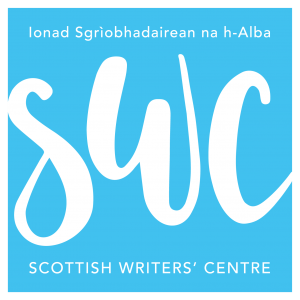Thanks to everyone who turned out for our incredibly varied and enjoyable Autumn Speakeasy. As is now almost tradition, Derek Parkes began the evening with some fine poems (ranging from Derek being the only man in a suit on dress-down Friday, to the family holiday decision of ‘bugger Cleethorpes, next year we’ll try Spain’).
Frances Corr then regaled us with a chilling and thoughtful existential poem about darkness, a touching portrayal of a neighbour on medication, a paean to the beauty of the dovetailed joint, and five excellent very short poems reflecting on the aftermath of the independence referendum.
It was time for some Gaelic next, with Catriona Lexy Campbell’s quietly moving long poem on the subject of planting trees with her grandfather (and the words of prayer he would utter over the seeds, that both human and trees would grow and prosper in the light).
Then, Mary Thomson gave us a poem about dreaming falling asleep and dreaming about maps; a sensitive reflection on youthful perspectives on religion; a meditation of St Mungo’s relationship to the city of Glasgow built over him; and finally, an ode to the joy of power-walking after a successful hip operation.
Bob Chessar took the floor afterwards, with three short pieces about Australian aboriginals which began with wit and humour (the rocket blast effect of a didgeridoo on an unsuspecting white man) and ended with a lament evoking the extent of the damage that their indigenous culture has suffered at the hands of those “who foolishly call Uluru ‘Ayre’s rock'”.
Ingrid Lees then delivered a powerful “Ode to a Slain Whale” (who “God created before Man”), and an evocation of the atmosphere of local university landmark “steel henge” and its resemblance to Callanish.
Ruby McCann subsequently offered her Duke Street Rhapsody, which colourfully evoked (in highly musical terms) what is the bustling life of – incredibly – the longest street in Britain. Indeed, such phrases as “jeeper’s creepers” and “be-pop rain” displayed the influence of Ruby’s years in America (to the extent that we could almost imagine a jazz quintet playing in the background).
Next, Lynn Pilkington introduced the welcome influence of a younger generation with her performance poetry and rap-inflected rhythms. She also introduced free lollipops from a bowler hat (which were very welcome). The agonies of love and the threat of mental illness were interwoven with the contemplation of geese on Glasgow Green, a ‘favourite thinking spot’.
Don Taylor gave us three historical poems, liberally sprinkled with the couthy Scots tongue; the first about the battle of Flodden, the second an exploration of the closing acts of Macbeth, and the third a Highland memory of watching the moon landings on a barely-functioning black and white television set.
Saskia Tepe then took us to another, yet darker world, via the medium of prose and memoir: her recollections of an upbringing in a post-war displacement camp in West Germany, amongst disparate immigrants of numerous nationalities and languages. We were transported as she spoke, like watching a film or living another life wildly different from our own – and yet strangely familiar.
L.A.Traynor (Lesley McKay) had just returned from Orkney, and was charged up with inspiration from her favourite archaeological sites. Her poignant poem, The Lacework Heart, was followed by an intriguing children’s story – with illustrations – called Threads, which she has recently completed.
Rick Rennie, a self-taught Gaelic speaker, then read us his short story, Regret, which we were later able to read in an English translation handout; the story of a man looking back on his life and lost loves, in the face of the ultimate revelation of impending mortality.
Linda Jackson gave us four powerful poems. One about an intimate encounter with a traumatised young male refugee from the Balkan states, one about Aboriginal spirits protecting a burial ground, another concerning subtle observations on a Paris vacation, and lastly a comparison between a drunken Glasgow girl and a whale beached at midnight on Uist.
Last but not least, Ann McKinnon played us out with some rather excellent Scots poetry; taking us from the building of the Forth Rail bridge, via death, to the beauty of nature ‘on the shore’.
All in all, a cross-section of Glasgow’s grassroots writing scene – revealing plenty of life and promise!




